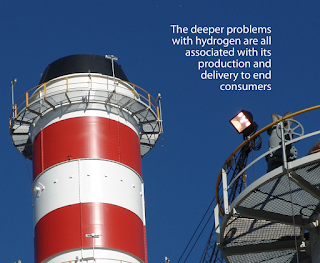(Pics from this blog)
If only the current Australian government would take advice like this. This is from the United Kingdom's Committee on Climate Change to the U.K. government in 2020.
 |
| Climate Action Now |
In its annual report to Parliament, the Committee provides comprehensive new advice to the Government on delivering an economic recovery that accelerates the transition to a cleaner, net-zero emissions economy and strengthens the country’s resilience to the impacts of climate change.
 |
| Cities might become unbearable. |
They can be delivered through strong coordination across Whitehall. Doing so will propel the UK towards more rapid climate progress and position the country as an international climate leader ahead of the pivotal COP26 climate summit in Glasgow next year.
CCC Chairman, Lord Deben, said: “The UK is facing its biggest economic shock for a generation. Meanwhile, the global crisis of climate change is accelerating. We have a once-in-a-lifetime opportunity to address these urgent challenges together; it’s there for the taking. The steps that the UK takes to rebuild from the COVID-19 pandemic can accelerate the transition to a successful and low-carbon economy and improve our climate resilience.
Choices that lock in emissions or climate risks are unacceptable.”
 |
| Climate Change is a fact |
The Committee’s new analysis expands on its May 2020 advice to the Prime Minister in which it set out the principles for building a resilient recovery. In its new report, the Committee has assessed a wide set of measures and gathered the latest evidence on the role of climate policies in the economic recovery. Its report highlights five clear investment priorities in the months ahead:
1. Low-carbon retrofits and buildings that are fit for the future.
 |
| Hydrogen energy still requires research and development |
2. Tree planting, peatland restoration, and green infrastructure. Investing in nature, including in our towns and cities, offers another quick route to opportunities for highly-skilled employment, and outcomes that improve people’s lives. By making substantial changes in our use of land, which are needed to meet the UK’s Net Zero target, we will bring significant benefits for the climate, biodiversity, air quality, and flood prevention.
 |
| Land ice is melting |
4. Infrastructure to make it easy for people to walk, cycle, and work remotely. Dedicated safe spaces for walking and cycling, more bike parking and support for shared bikes and e-scooters can help the nation get back to work in a more sustainable way. For home working to be truly a widespread option, resilient digital technology (5G and fibre broadband) will be needed.
5. Moving towards a circular economy. Within the next five years, we can not only increase reuse & recycling rates rapidly but stop sending biodegradable wastes to landfill. Local authorities need support to invest strategically in separated waste collections and recycling infrastructure and to create new regional jobs.
There are also opportunities to support the transition and the recovery by investing in the UK’s workforce, and in lower-carbon behaviours and innovation:
1. Reskilling and retraining programmes. The net-zero economy will require a net-zero workforce, able to install smart low-carbon heating systems and to make homes comfortable; to design, manufacture and use low-carbon products and materials; and to put carbon back, rather than taking carbon out, from under the North Sea. Now is the time to build that workforce and to equip UK workers with vital skills for the future.
 |
| Our children want answers. |
3. Targeted science and innovation funding. Kick-starting research and innovation now in low-carbon and adaptation technologies will facilitate the changes needed in the decades ahead and build UK competitive advantage. The COVID-19 crisis has highlighted the importance of research if we are to understand fully the threats and learn how to manage them.
 |
| Cities must retreat from the coast. |
Related: Climate change: How the UK contributes to global deforestation (excerpt): BBC
#economy,
#heatwaves, Britain, cities, COVID-19, energy, England, floods,
infrastructure damage, reskilling, science, tidal flooding, United
Kingdom
No comments:
Post a Comment